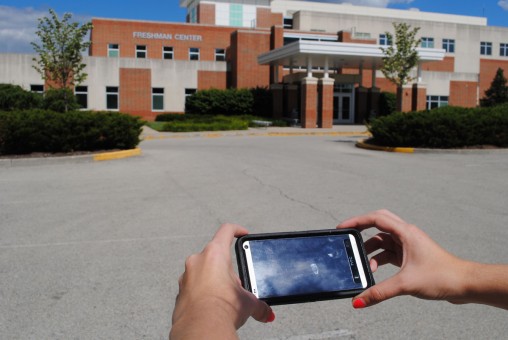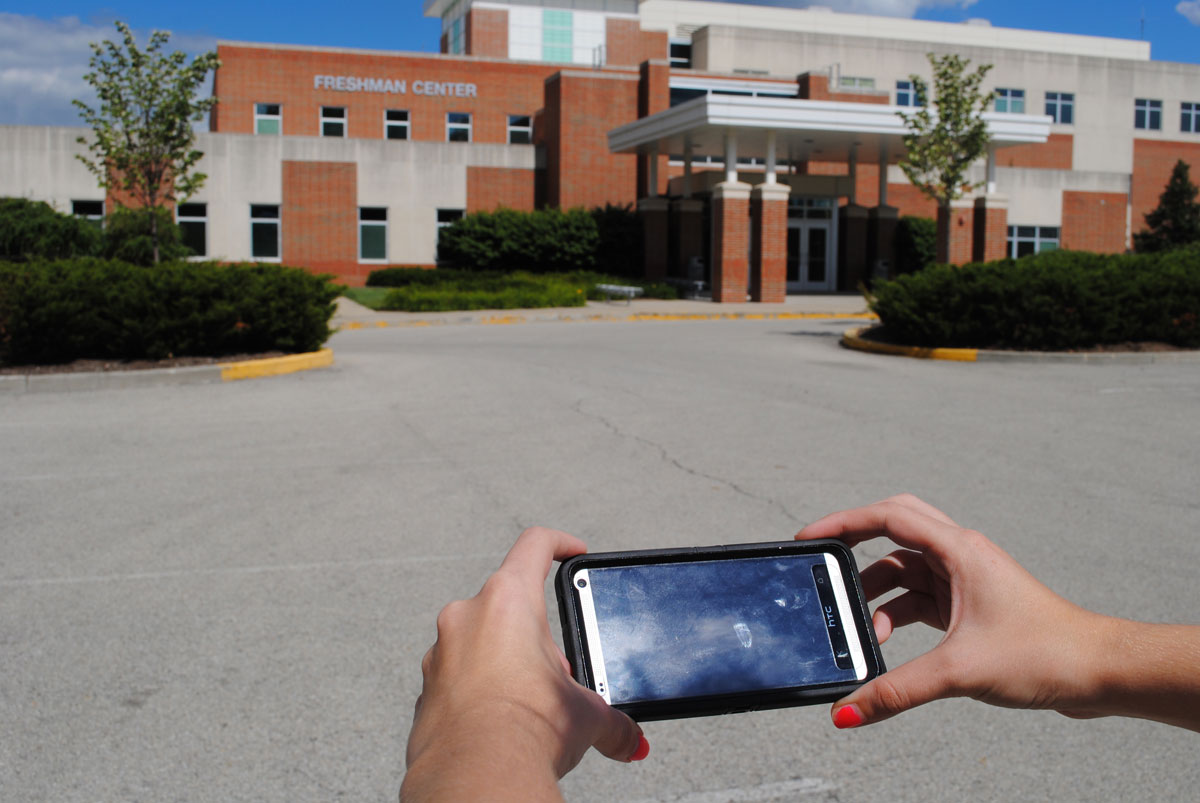
By Pete Smith
Sexting – the practice of sharing sexually explicit images between smart phones – makes parents shudder and law enforcement officials and lawyers cringe. It certainly does not make for pleasant dinner time conversation.
The practice is not new, and tends to be prevalent among young people. Numerous posters hanging on the walls in Carmel High School attest to this as they offer tips for people who feel pressured to send sexts.
But still, questions abound.

Who is responsible for preventing the practice? Who is responsible for preventing the unwanted sharing of images? Does sharing constitute invasion of privacy? Bullying? Child pornography? Could you go to jail for engaging in sexting or sharing the explicit images? And should police be involved or is this a matter for parents and educators?
Because of the confusion surrounding the practice that sprung from new technology, Indiana lawmakers sought to update state laws that deal with child pornography in a large scale update of the state’s criminal code – HEA 1006 which went into effect July 1.
So what does that mean for students?
Now, if a student is caught with sexually explicit images on a smart phone while at a school, teachers and administrators are likely to immediately involve the school resource officer to assess the situation.
Current in Carmel filed a public records request with Carmel schools to determine whether the school district has a policy to handle incidents of sexting – it does not.
And because most teachers are worried about their own liability and consider themselves “mandatory reporters,” police are often contacted to sort out legal issues.
Where as all incidents of people under the age of 18 sexting previously would have been classified as possession or distribution of child pornography under Indiana Code 35-42-4-4, the law that went into effect on July 1 offers a defense so as not to criminalize every incident of teenage sexting.
‘Not a good idea’
The updated law characterizes any image of a person under the age of 18 that involves “sexual conduct” as child pornography. Because “sexual conduct” is defined in the law based on an intention to arouse sexual desires in a viewer, almost any form of nudity involving breasts or genitals could potentially meet the standard.
But it does offer a defense for teenagers if they meet all of the following criteria:
● A cell phone or social networking website was used to possess, produce or disseminate the image.
● The defendant is four years younger or older than the person in the image.
● The relationship between the defendant and the person in the image is an “ongoing personal relationship.”
● The crime was committed by a person younger than 22.
● The person receiving the image or the person depicted in the image knowingly participated in the sexting.
Criminal defense attorney Ben Knowles said, “You don’t see police going after possession among teens because it’s politically unpalatable.”
State Sen. Luke Kenley agreed. His district includes part of northeast Carmel, and he said that prosecutors exercise discretion and that he was unaware of any instance where sexting led to a prosecution under child pornography laws. But that should not be taken as a sign of encouragement.
“It’s not a good idea to do this under any circumstance,” Kenley said. “I don’t care if you’re 14, 15 or 16.”
And under the updated law, teenagers only still have a legal defense. If found with sexting images, they could likely still be arrested and jailed for a day. They wouldn’t have a chance to provide a defense until a pre-trial hearing.
‘Everyone else is doing it’
“What 16-year-old is going to read a statute?” Knowles said. “They made this a Level 5 felony. It’s not a misdemeanor. I would be worried if I had an image on my phone.”
Knowles recently sat down with Current in Carmel in attempt to answer some basic questions about sexting, but readers should note that none of his responses constitutes legal advice.
Knowles said that people need to realize that the current law does not take intentions or motivations into account, and it penalizes any form of dissemination.
“’Everyone else is doing it,’ is not a legal defense,” he said.
And dissemination could mean downloading an image, sending an image, forwarding a text or something as simple as showing another person the screen of your phone.
“It would be smart to delete them,” Knowles said of any explicit images on a smart phone, noting that dissemination could even include other people looking through images on your phone without your knowledge.
And what if the picture is of yourself? Well, technically any image of someone under 18 is still child pornography.
And what if the image was taken when a person was a minor, but a significant time has passed and the person is now older than 22? Or what if it was taken in another state besides Indiana? Those are just some of the legal gray areas that would be discussed in a courtroom, Knowles said.
His advice: “Good God. Don’t send out pictures like that.”
And what should people do if they unwittingly receive an image? The best practice is likely to immediately delete the image, instruct the sender never to send something like that again and then alert police.
Although Knowles said there likely is no legal obligation to involve police for people who aren’t mandatory reporters.
And anyone who sends explicit images could likely be charged with multiple different offenses.
Knowles said that if he had to explain this to his child, he would say, “Showing graphic images of each other is not an example of a mature relationship I would want for my child. That is stupid. Stop doing that.”
‘Internal matters’
On May 30 the Current in Carmel reported (https://youarecurrent.com/carmel-police-still-investigating-sexting-case-at-high-school) on an incident of sexting among freshman at Carmel High School that prompted a police investigation.
The lack of clear purpose or basic answers about the investigation from police or school administrators led to wild speculation in the television news outlets, another area newspaper and on Twitter with multiple students referring to the investigation as the “Freshman Holocaust,” in reference to alleged suspensions stemming from the incident.
Current in Carmel originally reported that students had said there were 147 suspensions tied to the investigation. That number is incorrect and school administrators confirmed that the number of students suspended was in the “low double digits.”
Police could offer no details about the case, but did confirm that the investigation had been concluded and forwarded to the Hamilton County Probation Department which in turn would offer a recommendation to the prosecutor’s office. The prosecutor’s office is barred from discussing juvenile matters.
“The schools are trying to deal with these things as internal matters,” Kenley said.
In the Current in Carmel’s previous reporting, we posed the following question: Is this a police matter?
Under the updated state laws, the answer is still yes.
So parents should make sure their children are aware of the ramifications of misusing their smart phones.



